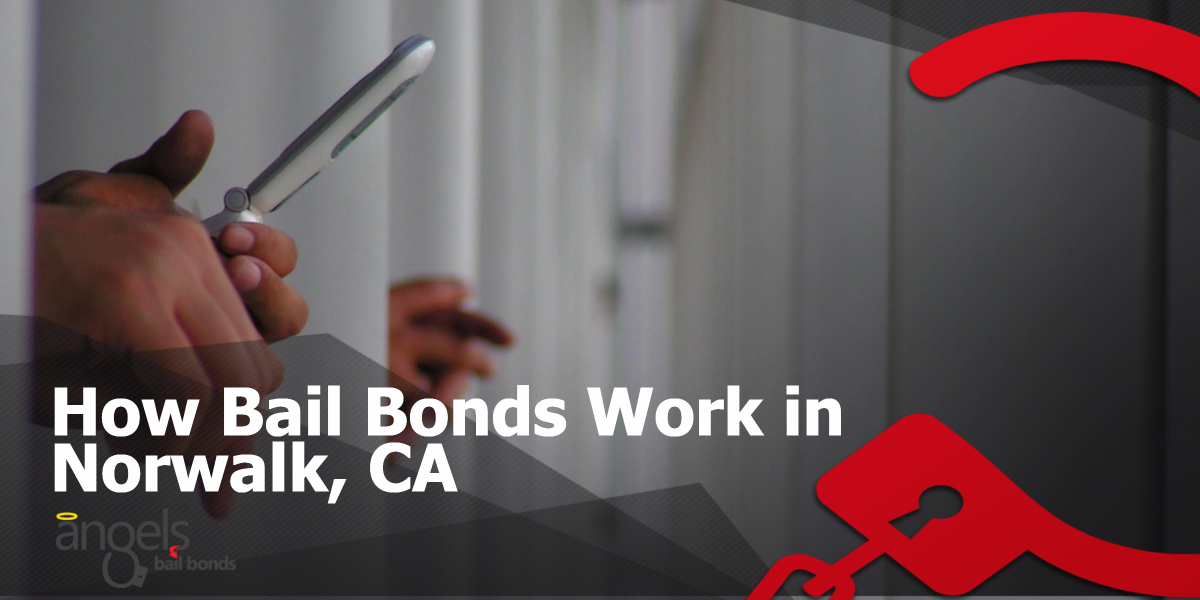How Bail Bonds Work in Norwalk, CA
A bail provides people under arrest the chance to stay out of jail while expecting a trial. Practically anyone can bail another person out of jail.
Many individuals who are not willing or able to come up with bail money by themselves look reach out to bail bondsmen services, who post bail in exchange for a fee. The bail bond fee in Norwalk is most of the time, about 10 percent of the total bail amount, although this fee can vary depending on the events.
A bail bondsman can help you comprehend your rights and can assist you with the bail process.
Throughout the arrest process, the police are required to read the legal rights of the accused out loud; these are commonly known as Miranda rights. Once arrested, the accused is led to a jail facility and “booked,” which is essentially an administrative procedure.
The Miranda Rights consist of:
- You have the right to remain silent
- Anything you say may and will be used against you in a court of law
- You have the right to consult an attorney-at-law before speaking to the police and to have an attorney present during questioning.
- If you cannot afford an attorney, one will be assigned to you before any questioning.
- If you decide to answer questions now, you still have the right to stop at any time until you talk to an attorney.
A bail is a right ensured by the U.S. Constitution. It is a “surety bond” (usually in cash) that the court holds to make sure that the person accused of crime attends to the required court appearances.
Visit this link if you´re looking for a Norwalk Bail Bondsmen.
Most arrested people have the opportunity to “post bail,” that enables the accused to remain free until trial. To decide if the accused will be allowed to post bail, and how much the bail will be, there may be a bail court after the arrest.
The bail course of action in Norwalk city normally begins within 48 hours of the arrest; in some cases, and usually, with some help from a professional bail bondsman, it can begin as quickly as in one hour.
If it is a minor crime or if the authority believes that the accused is improbable to flee, he may be freed “on his own recognizance.” In this case, no bail is needed.
Courts take numerous factors into account when deciding how much bail the accused must pay to get out of jail. For common crimes, many tribunals in Norwalk use a “bail schedule.” This is a list of violations and the amount of bail that must be posted for those crimes. They are extensively used, but bail schedules do not incorporate all crimes; when a person is accused of an offense not included in the court’s bail schedule, the judge will determine the bail amount to be paid.
There Are Two Different Options When It Comes To Post Bail:
The person arrested can pay the required bail with his funds or money borrowed from family members or friends.
Alternatively, the accused can use a bail bond agency in the Norwalk area to pay the bail in trade for a fee and collateral; this is called a bail bond. In return for this service, the person requiring the bail bond usually must secure the loan with some collateral and pay the bail bondsman a non-rebate fee equivalent to around 10 percent of the total bail.
What Happens After The Bail Is Paid?
Once bail has been paid, the person arrested is free to go but must show up at the next scheduled court appearance. If this is true, the bail is reimbursed to whoever paid it.
In cases where a bail bondsman posts the bail, the bail is refunded to the bail bondsman who then refunds the collateral to the accused, without the fee. However, if the accused fails to show up in court, a warrant is assigned for the arrest, and the tribunal keeps the bail money; also, the accused loses whatever collateral was given to obtain the bail bond.
Bail varies depending on the state or even the county in some instances. To learn the bail procedures in your county or state, you may want to contact a bail bondsman in your area. Let our team of experts help you with all the information pertaining on how bails work inside the Norwalk region.
Except in cases where bail is defined according to a set schedule, bail is the consideration of the judge. However, the 8th Amendment forbids the court from assessing “excessive bail.” To learn more about your rights and the bail process, get in contact today with our family-owned bail bond agency. Norwalk Bail Bonds is located in Norwalk and we have been helping our neighbors all over South California get their loved ones out of jail since 1956.





